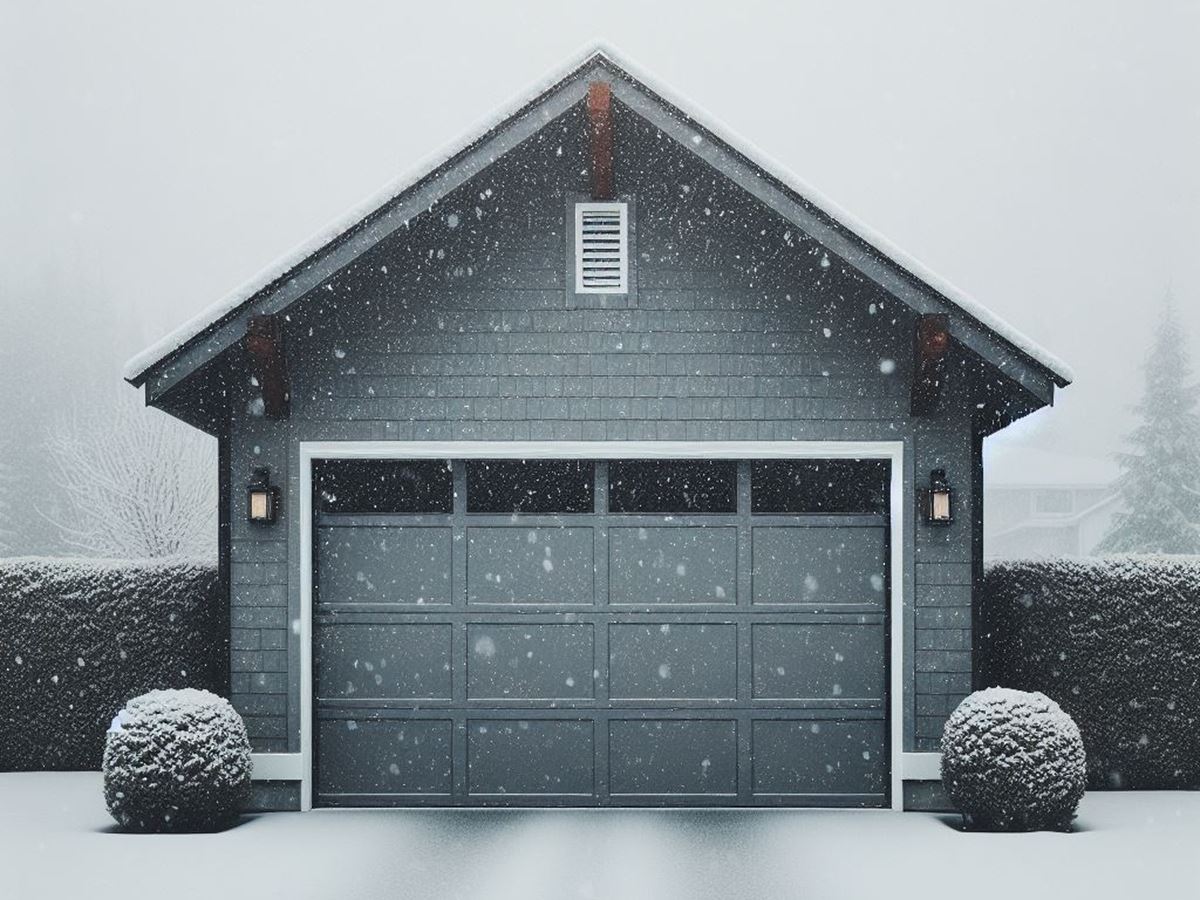Winter's Negative Effects on Garage Doors

There are a number of ways in which severe weather conditions can negatively affect your garage door, which is why we always recommend winterizing it before the really cold weather comes. If you have yet to do so, it is still not too late. Simply follow the advice in today’s guide and you should be able to avoid the most commonly encountered winter issues with garage doors and garage door openers in this part of the world.
Winterizing Advice from Your Local Garage Door Company
The advice below is based on our experiences as garage door repair experts in Broomfield and Parker but applies equally to garage doors in any part of the world where the temperature drops significantly during the wintertime.
Lubricate All Moving Parts
Applying a good-quality lubricant to all moving parts of your garage door and opener will help to prevent any of these components from freezing together during the winter months. Make sure that you lubricate all of the hinges between the door panels, the torsion or extension springs, and the rollers and tracks. For plastic parts we recommend a silicone-based lubricant and for metal components you may like to try a white lithium grease. After applying, don’t forget to wipe off any excess lubricant as it may otherwise attract small particles of dirt and dust, leading to more rather than less friction.
Install Weather Stripping
Install foam, rubber or vinyl weather stripping around the edges of your door to make sure there are no gaps between it and the door frame. In this way, you can prevent cold winds and precipitation from entering your garage, lowering the temperature, and causing components to freeze. Alternatively, you can apply a bead of caulk around the sides of the door frame to seal any gaps between it and the door.
Keep the Area in Front of Your Garage Clear of Ice and Snow
It is very important to keep the area directly in front of your garage door clear of snow and ice throughout the winter months. Any ice or snow that ends up on the door itself will add extra weight and make it harder for your garage door opener to operate effectively. If you end up putting too much strain on the opening mechanism, you could overload it and cause severe damage to the springs or the motor.
Remove Snow From Garage Roof
You should keep your garage roof clear of snow and ice too as it could be blown in front of the door if you do not. For garages with pitched roofs, we recommend investing in a snow rake with some extension poles rather than trying to access the roof with a ladder. If you find it difficult to keep up with this task through the colder months of the year, you may like to try enlisting the help of a friendly neighbor or, failing that, hiring a local handyman to do it for you.
Perform Maintenance Jobs in Accordance With Manufacturer’s Guidelines
Keeping up with regular garage door maintenance tasks when the weather is cold can be an unappealing prospect but it is far better than the alternative: a non-functioning overhead door just when you need it most. If you are not confident in your ability to do this, you should contact your local garage door company and ask if they offer a maintenance service to local customers.
Consider Heating Your Garage in the Coldest Months
One of the easiest, if not the cheapest, ways to prevent cold weather from causing issues with your garage door opener and the door itself is to heat the space inside. There’s no need to heat it to the same temperature as the rest of your home: just keep it above freezing and you’ll avoid most potential issues.
If you take all of these preventative measures, you shouldn’t encounter any major issues with your overhead door this winter. If you don’t have time to try them all and something goes wrong, please feel free to call the garage door repair specialists at A Better Garage Door whenever convenient. It will be our pleasure to fix your door and help you avoid any future issues.